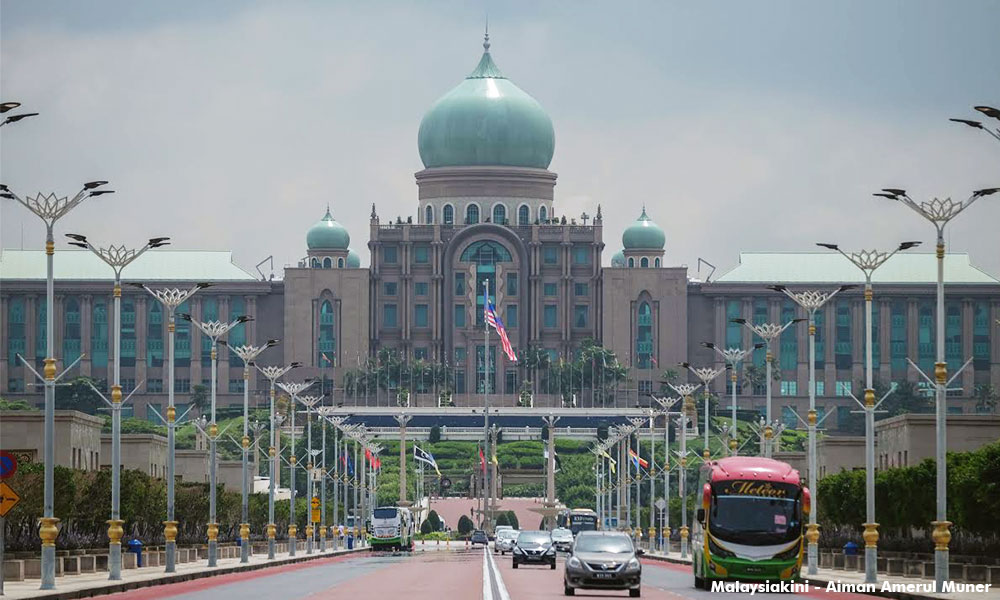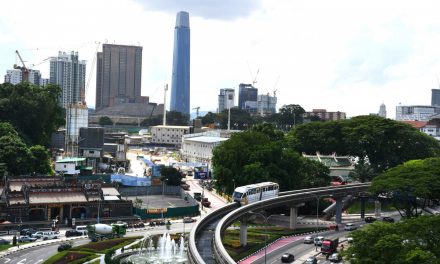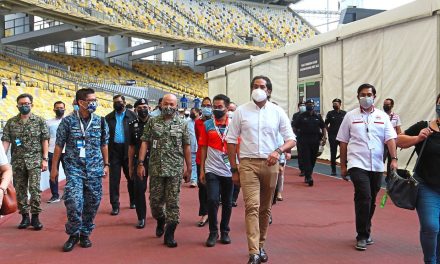Malaysia’s institutions, policies remain credible and effective, says Moody’s analyst
Malaysia’s institutions and policies remain relatively credible and effective despite politics in the country that has become much more volatile in recent years. Moody’s Investors Service Sovereign Risk Group assistant vice-president and analyst, Christian Fang said generally, macroeconomic institutions had not been the target of politics and policies have generally remained sound despite a series of political upheavals that took place in 2018 and 2020. “Even with the abolishment of goods and services tax (GST) in 2018, there was still an appetite for fiscal consolidation by the fiscal authority,” he said. According to him, foreign investors have also not been deterred in any big way by the political changes in Malaysia. On the Covid-19 vaccination programme’s impact on Malaysia’s economic growth, he said the country’s GDP would likely accelerate faster than the 6% growth projected by Moody’s earlier. (Malay Mail)
Four Malaysians make debut on Forbes billionaires list
New Malaysian entrants to the Forbes world’s billionaires list this year include the Tan brothers of MR DIY Group (M) Bhd, Westports Holdings Bhd’s Tan Sri G Gnanalingam and Greatech Technology Bhd co-founder and CEO Tan Eng Kee. In Forbes’ 35th annual list of the world’s billionaires, brothers Tan Yu Yeh and Tan Yu Wei made their debut with estimated net worths of US$1.8bil and US$1.1bil respectively. The brothers have seen their fortunes soar following the IPO of MR DIY last year. Gnanalingam was included in the list with an estimated net worth of US$1.7bil while Tan Eng Kee became another of the world’s US-dollar billionaires with an estimated net worth of US$1.1bil. Meanwhile, Hong Leong Group’s Quek Leng Chan continued to top the list of Malaysian billionaires with an estimated net worth of US$9.7bil. Globally, Amazon CEO Jeff Bezos remained the richest person in the world with US$177bil net worth. This was followed by Tesla’s Elon Musk (US$151bil), luxury retailer LVMH’s Bernard Arnault and family (US$150bil) and Microsoft’s Bill Gates (US$124bil). There is a record-breaking 2,755 billionaires on the list, including 493 newcomers despite the onset of the coronavirus pandemic. The Forbes billionaires have a combined net worth of US$13.1 trillion, up from US$8 trillion on the 2020 list. (The Star)

HSR erasure to lower property value
The recent RM320 million settlement between Malaysia and Singapore for the cancellation of the highspeed rail (HSR) mega project is expected to devalue properties within the localities of the stations that were earlier planned along the proposed line. CCO & Associates (KL) Sdn Bhd ED Chan Wai Seen said properties around the HSR line, which previously saw a rise in prices, may undergo correction to an acceptable level. Since the announcement of the project, land prices in the chosen areas had appreciated as investors began to plan various ancillary developments that were expected to experience further growth with the completion of the HSR. Transportation consultant YS Chan said those areas would return to “backwater status” and investors would have to wait until urban development reaches the localities — perhaps decades later. Chan said areas that looked set to be the next hot spots, especially Bandar Malaysia which was earmarked for transit-oriented development projects, have lost steam without HSR. The only saving grace could be the fact that HSR’s developers had not acquired any land for the construction of the mega project. (The Malaysian Reserve)
WHO says no to vaccine passports for now
The World Health Organisation (WHO) has come out against vaccine passports, for now, saying they may exacerbate unequal access to vaccines in many countries. Regional Emergency director for the WHO Western Pacific Region (WPR), Dr Babatunde Olowokure said although they understood the importance of international travel for countries’ economic recovery, the global vaccine supplies were currently too limited to introduce vaccine passports. “Preferential vaccination for travellers could lead to fewer vaccines for those who are considered at risk,” he added. He also warned against “vaccine optimism”, saying that current public health measures such as wearing a face mask and practising hand hygiene should still continue despite the vaccination. (Malay Mail)
Nestlé Malaysia opens its first plant-based meals production site in Asean
Nestle S.A, through Nestlé (Malaysia) Bhd, has launched its pioneering plant-based meal solutions manufacturing facility in Shah Alam, Selangor, the group’s first in Asean and one of only two in Asia. Nestle Malaysia invested RM150 million in the facility, which has been the main contributor to the RM280 million capital expenditure in 2020, the company’s highest in the last six years. The new facility in Shah Alam will cater to the rising demand for plant-based foods and will supply local demand as well as exports. Nestle Malaysia CEO Juan Aranols said the production site would allow it to supply locally produced, high-quality, great-tasting and Halal certified plant-based meals. Compared to the equivalent meat-based products, he said these plant-based solutions were also more sustainable as they have a much lower carbon footprint and they require less use of natural resources such as water or land. The site is located within Nestlé’s existing Shah Alam Industrial Complex with a build-up area of 6,000 square metres. (NST Online)





